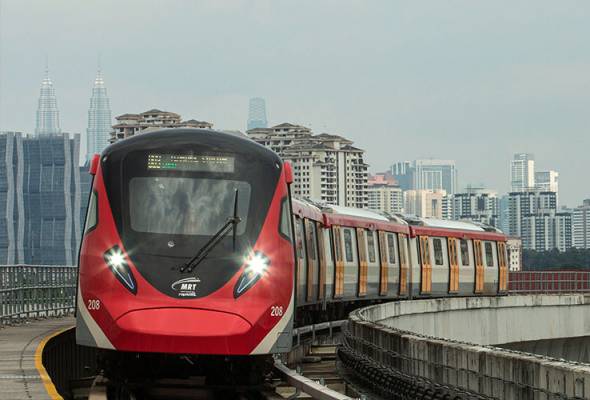
Published in Astro Awani, Malay Mail, New Straits Times, and theSundaily, image by Astro Awani.
Is India, or at least parts of the world’s largest democracy and a superpower in its own right, on the brink of a dawn of what’s a genocidal campaign against Muslims?
While India is, tragically, no stranger to orchestrated religious clashes such as the 2002 Gujarat riots that represented the unleashing anti-Muslim sentiments on a scale of mass massacre and period of time, these “high-intensity” events have been “concentrated” or relatively infrequent.
But anti-Muslim violence has become institutionalised and regular(ised) in recent years – with small-scale and “micro” violence at individuals or weak targets. Figures such as C J Werleman has been active in highlighting the plight of Muslims in India (among other places) whereby inflammatory speeches inciting/stoking anti-Muslim and Islamophobic hatred is freely conducted and “vigilante” mobs engage in harassments and physical assaults on selected targets – unconstrained by law enforcement.
The phenomenon of majoritarian supremacy and hegemony, as embodied by the Hindutva ideology of the Rashtriya Swayamsevak Sangh (RSS) which it’s to be noted is a modern or 20th century development influenced by fascism, threatens to destroy India’s secular, inclusive and tolerant character as conceived by the founding fathers.
It has reached a point where minorities, especially Muslims and Christians, are singled out as a threat to the Hindutva conception of nationhood. For adherents of these two monotheistic or Abrahamic faiths, their customary association with proselytisation and the concomitant political significance or implication stand out.
In turn, Muslims are the prime target as they’re deemed the “fifth columnists” – with their loyalty to the Union and Republic of India suspect. Indian Muslims are viewed with utmost suspicion and mistrust by Hindutva proponents because of the former’s ostensible (rightly or wrongly) sympathies with co-religionist Pakistan – India’s nemesis and neighbour – and on the related issue of Jammu & Kashmir.
The low-intensity militant/violent hostility at Indian Muslims is now executed in tandem with economic warfare aimed at business interests also.
There’re now calls for Muslims-owned businesses to be boycotted. Even food – that which binds people irrespective of race and religion together – has been weaponised as part of the “othering” of Indian Muslims and to create perpetual tension and polarisation and segregation (as a form of apartheid).
Recently, India’s national fruit, i.e., the mango, has now been weaponised. It’s been reported in The Deccan (“Economic boycott of Muslims: All of us lose in the long run”, April 15, 2022) that Hindutva groups in Karnataka have asked Hindus to boycott Muslim mango farmers and sellers. The wholesale mango trade is traditionally dominated by Muslims.
The same report in The Deccan highlights that “[l]ast year, Muslim scrap dealers, bangle sellers [and] dosa hawkers … hit the headlines. This year, it is the turn of Muslim fruit sellers, street vendors, tour operators, cabbies, and meat [shop owners]. In recent weeks, in Karnataka’s Dharwad district, men in saffron scarves have also destroyed watermelons belonging to Muslim pushcart vendors outside a temple. In one video clip circulating on social media, one of the miscreants is heard telling a policeman about an ultimatum given to Muslim fruit sellers”.
Then there’s, of course, cow vigilantism which has been on the rise since the return to government by the Bharatiya Janata Party (BJP) under Prime Minister Narendra Modi in 2014 and the assumption of ascendancy in Indian politics.
According to the Human Rights Watch (HRW) in the “Violent Cow Protection in India Vigilante Groups Attack Minorities” report (February 2019), “[b]etween May 2015 and December 2018, at least 44 people – 36 of them Muslims – were killed across 12 Indian states. Over that same period, around 280 people were injured in over 100 different incidents across 20 states”.
The latest US State Department’s 2021 Report on International Religious Freedom has flagged India on human rights abuses against Muslims and Christians. For example, the Report stated that on October 20, Hindu groups affiliated with the RSS [and other Hindutva groups] attacked and [vandalised] at least six mosques and more than a dozen shops and houses belonging to Muslim communities across Tripura State, reportedly in retaliation for attacks on minority Hindus in Bangladesh during the Durga Puja festival there”.
The same US Department’s 2021 report stated that “[a] number of violent attacks against Christians in the country rose to 486 during the year from 279 in 2020. According to Catholic news agency Agenzia Fides, Hindus committed 13 instances of
violence and threats against Christian communities in Uttarakhand, Haryana, Uttar
Pradesh, Chhattisgarh, Madhya Pradesh, and Delhi”.
On the other hand, “… suspected terrorists targeted and killed civilians and migrants from the Hindu and Sikh minorities, including Hindu migrant labourers from Bihar, in the Union Territory of Jammu and Kashmir … [a]s of December, alleged terrorists had killed 39 civilians including two schoolteachers from the Hindu and Sikh communities”.
The latest high-profiled Islamophobic incident involves two BJP spokespersons who insulted the Prophet and Islam. The General Secretariat of the Organisation of Islamic Cooperation (OIC) collectively and individual member-states such as Saudi Arabia, Iran and our country have expressed displeasure and condemned the remarks.
But – in what seems to be straight out of the Zionist playbook – Uttar Pradesh has taken the step to bulldoze the houses of those involved in masterminding and leading the protests against the Islamophobic remarks by the now two ex-BJP members. Such action should not only be illegal and unconstitutional, it can also be deemed as a form of social genocide against Muslims in India.
Despite some action taken by the Gulf states which hosts a large and significant presence of Indian expatriates and migrant labour in the form of removal of Indian products from supermarkets, much more needs to be done to send out a strong message.
India needs to step back from the “brink” – that’ll lead down the path of bloody genocide.
The de-humanisation of Indian Muslims (even if done in response to the suffering of religious minorities in neighbouring countries and “mimicking” their treatment there) can never be justified at all and threatens to destroy the fabric of the nation itself.
India is already beyond the verge, however, when it comes to becoming the country with the world’s most pogroms.
The time might come when it’s not just Delhi or Amritsar or Ahmedabad that’re burning but India itself.
Jason Loh Seong Wei is Head of Social, Law & Human Rights at EMIR Research, an independent think tank focussed on strategic policy recommendations based on rigorous research.

